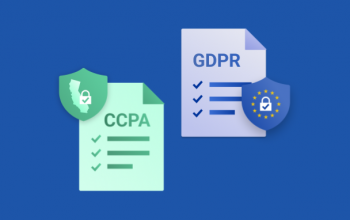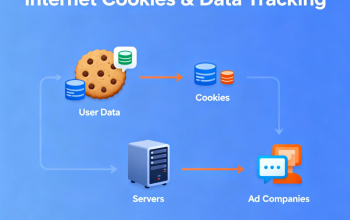In the past decade, the way people communicate has shifted dramatically. Instant messaging apps have replaced emails and traditional SMS for many individuals, becoming the dominant form of digital interaction. Among these, encrypted messaging apps have emerged as a central player, promising privacy and security in a world where data breaches and surveillance are increasingly common.
Yet, while the appeal of secure messaging is undeniable, it is essential to understand both the advantages and disadvantages of these platforms. This article takes a deep dive into what encrypted messaging apps are, why they matter, their key benefits, and the challenges they present. By the end, you’ll have a well-rounded understanding of whether these tools are worth adopting and what trade-offs come with them.
What Are Encrypted Messaging Apps?
Encrypted messaging apps are platforms that use encryption protocols to protect communication between users. In simple terms, encryption is a method of scrambling information so that only the sender and the intended recipient can read it.
One of the most widely discussed forms is end-to-end encryption (E2EE). In E2EE, the content of a message is encrypted on the sender’s device and only decrypted on the recipient’s device. Even the app provider cannot access the content in transit.
Some of the most popular encrypted messaging apps include:
- Signal – Often regarded as the gold standard of private communication.
- WhatsApp – A mainstream app with over 2 billion users worldwide, offering E2EE by default.
- Telegram – Provides optional E2EE for “secret chats” alongside cloud-based chats.
- iMessage – Apple’s messaging service with built-in encryption between Apple devices.
The defining feature of these apps is that they prioritize privacy and security above convenience or data monetization, setting them apart from conventional messaging platforms.

Why Encrypted Messaging Matters
To understand the importance of encrypted messaging, it helps to consider today’s digital environment:
- Data Breaches Are Rising: Cybercriminals target personal data for financial gain. Messaging content without encryption is an easy target.
- Government Surveillance: In many countries, governments collect and monitor digital communications in the name of security. Encryption provides a counterbalance.
- Corporate Data Harvesting: Many free apps monetize by analyzing user behavior. Encrypted messaging reduces opportunities for invasive tracking.
- Personal Freedom and Activism: For journalists, activists, and people in politically unstable regions, encrypted apps can mean the difference between safety and persecution.
Encryption is not just a technical feature—it’s a fundamental aspect of digital rights and modern communication.
Pros of Encrypted Messaging Apps
Encrypted messaging apps bring undeniable advantages, and these benefits explain their growing popularity across the globe.
Enhanced Privacy
The most obvious benefit is privacy. With end-to-end encryption, messages remain confidential between the sender and receiver. Neither hackers, internet service providers, nor even the app developer can read the content.
Protection Against Cybercrime
Cybercriminals thrive on unprotected data. Encrypted apps make it exponentially harder for attackers to intercept or manipulate communication. Even if data is intercepted, encryption renders it unreadable.
Freedom of Expression
In regions where governments suppress dissent, encrypted apps allow people to communicate safely. Activists, whistleblowers, and journalists use these apps to protect their sources and avoid reprisals.
Secure File Sharing
Most encrypted apps allow sharing of photos, documents, and videos. Encryption ensures that sensitive files—whether personal photos or business documents—remain safe from unauthorized access.
Reduced Data Exploitation
Unlike traditional social media platforms that collect and sell user data, most encrypted messaging services claim minimal or no data collection. For example, Signal only stores the date a user registered and the last login date, nothing more.
Trust and Reliability
Knowing that your messages are secure builds trust in digital communication. Friends, family, and colleagues can share information without fear of third-party intrusion.
Cons of Encrypted Messaging Apps
While encryption brings strong advantages, these platforms are not without their flaws and limitations.
Misuse by Criminals
A major criticism of encrypted apps is that they can be exploited by criminals and extremist groups. Since law enforcement cannot easily access the messages, illegal activities may go undetected.
False Sense of Security
Not all encrypted apps are equally secure. Some providers market themselves as private while offering weaker or optional encryption. Users may mistakenly believe they are fully protected.
Limited Features Compared to Traditional Apps
While many encrypted apps are evolving rapidly, some still lack the wide range of features offered by mainstream messaging platforms like Facebook Messenger or WeChat.
Potential Government Restrictions
Several countries are pushing back against encryption. Some governments demand backdoors for law enforcement access, while others outright ban certain encrypted apps. This creates uncertainty for users who rely on them.
Inconvenience in Cross-Platform Communication
Encrypted apps sometimes face compatibility issues. For example, Apple’s iMessage only works seamlessly within its ecosystem, making secure communication across platforms less convenient.
Backup and Data Recovery Challenges
Encrypted backups can create problems if a user loses their device or password. Since the provider cannot access the data, recovering lost messages may be impossible.
The Balance Between Security and Usability
The debate around encrypted messaging apps highlights a critical tension: security versus convenience. On one hand, maximum privacy often requires strict encryption protocols, minimal data collection, and complex authentication processes. On the other hand, most users prefer apps that are easy to install, fast to use, and rich in features.
This tension explains why some apps, like WhatsApp, adopt a hybrid approach. They provide end-to-end encryption but still collect certain metadata, such as phone numbers and contact lists. Meanwhile, Signal goes further in minimizing data collection, though at the cost of broader adoption and convenience.
Global Perspectives on Encrypted Messaging
Encryption is not just a technical issue—it is also deeply political.
- United States: Authorities have clashed with tech companies over access to encrypted communications, citing national security concerns.
- European Union: The EU generally supports encryption but continues to explore ways to balance it with law enforcement needs.
- Asia and the Middle East: Some countries have restricted or banned encrypted apps, forcing users to rely on less secure alternatives.
- Emerging Markets: Encrypted messaging apps are gaining popularity where citizens distrust government surveillance or corporate data misuse.
The global debate demonstrates that encryption is more than a feature—it is part of a larger discussion about rights, freedoms, and power in the digital era.
Case Studies of Encrypted Messaging Apps
Signal
Praised by cybersecurity experts and privacy advocates, Signal is open-source and transparent. Its strong encryption and minimal data collection make it the go-to app for journalists and activists worldwide.
Owned by Meta, WhatsApp is the most widely used encrypted messaging app. While it offers E2EE, its connection to a data-driven parent company raises concerns about metadata collection and corporate influence.
Telegram
Popular for its speed and group features, Telegram has optional encryption for private chats but lacks default E2EE for group conversations. Critics argue that its model leaves gaps in user protection.
iMessage
Integrated into Apple devices, iMessage provides strong encryption but is exclusive to Apple’s ecosystem, limiting cross-platform functionality.
Practical Tips for Users
If you are considering using encrypted messaging apps, here are some best practices to maximize their effectiveness:
- Verify Encryption Settings: Ensure end-to-end encryption is enabled for all chats.
- Use Strong Authentication: Enable two-factor authentication where possible.
- Beware of Metadata: Even if your messages are encrypted, metadata (who you communicate with and when) may still be logged.
- Keep Apps Updated: Developers frequently patch security flaws, so regular updates are crucial.
- Be Cautious With Backups: Check whether your backups are encrypted; otherwise, they could be a weak point.
- Educate Contacts: Encryption only works if both parties use the app securely.
Future of Encrypted Messaging
The future of encrypted messaging apps will likely be shaped by three key trends:
- Government Regulation: Expect ongoing battles between privacy advocates and governments pushing for surveillance powers.
- User Demand for Privacy: As awareness of digital privacy grows, more users will turn to secure platforms.
- Innovation in Features: Developers will continue integrating encryption with richer communication tools, from video calls to file sharing, without compromising privacy.
Ultimately, the future depends on how society balances the value of security against the need for oversight and accessibility.
Encrypted messaging apps are a powerful response to today’s digital privacy challenges. They empower individuals to protect their conversations, share sensitive information securely, and push back against surveillance and data exploitation.
However, they are not without drawbacks. Criminal misuse, technical limitations, and political pushback complicate their adoption. For everyday users, the decision to use encrypted messaging apps comes down to weighing the pros of enhanced privacy and security against the cons of limited convenience and potential restrictions.

In a world where personal data has become one of the most valuable commodities, the rise of encrypted messaging represents a critical step toward reclaiming control. Whether you are an activist, a business professional, or simply a private citizen, understanding both the benefits and limitations of these tools is essential for making informed choices about digital communication.



